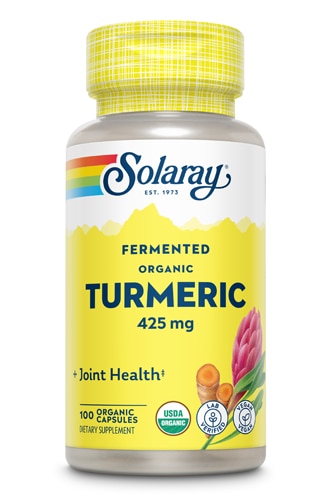Taking vitamins and supplements on a regular basis is hardly the anomaly it once was: The national vitamin and supplement market topped off at $33 billion in 2019, rendering it one of the largest industries in the U.S. People are becoming increasingly health-conscious, and with it has arrived a growing interest in supplementing with everything from vitamin D to turmeric.
Whether you’ve been supplementing for years or are just now hopping on the bandwagon, one question perplexes many: Why are some vitamins and supplements more expensive than others?
Here’s why—and how you can ensure you’re buying the right type for you and your family:
Ingredients
Some argue that inexpensive vitamins are just as effective as pricey choices, and while this may be true—read on—the type of ingredients in the supplement you’re buying is of utmost importance (and can mean the difference between paying $18 for iron rather than $3.99). Several vitamin and supplement manufacturers use fillers and “shelf-extenders” than can range from talc to hydrogenated oils, which may sound harmless but can have detrimental effects on your health. Vitamins and supplements are exempt from FDA regulation, meaning that “manufacturers are legally allowed to go to market with their product without proving their purity levels to anyone,” Today reports.
The onus, then, is on you. Conduct research, see if the product has been tested (see below), and know the percentage of the key ingredients to look for. Additionally, you can check the National Institutes of Health’s free fact sheet to get the info you need.
Marketing
Vitamins that cost three times more than their counterparts? Consider the marketing campaigns behind them. As the Globe & Mail puts it, “Most of us buy from names we know,” and those are names we see everywhere from our latest issue of Prevention to Facebook. As the Globe & Mail also reports, “After years of exposure to advertising, we instinctively trust the brands we recognize.” Advertising requires dollars, so, naturally, the prices will be higher.
Medical-Grade Supplements vs. Over-the-Counter Supplements
“Many people ask me about medical-grade supplements vs. other-the-counter (OTC) supplements that can be purchased at outside stores or online,” says Dr. Lynne Mielke. “Is your OTC multivitamin the same thing that you can get at a medical office? In a word: No.” Some OTC supplements, for example, use inexpensive, synthetic forms, while those prescribed in an office “usually contain the best forms of these vitamins, to ensure that your body is getting the most natural and effective form of the vitamin—even if it costs a little more,” Mielke adds. Additionally, OTC products generally contain a lower dosage than a medically-prescribed supplement. Take niacin, for example. Praised for its ability to support a number of benefits—including digestive health and your skin—experts say that a prescription-strength is needed for it to be effective.
Is this to say that all of your vitamins and supplements need to be prescribed by a health professional? While you definitely need to consult with your doctor first (better yet, ask for a blood test to see what you may be lacking), quality brands that refrain from using inexpensive ingredients can be just as valuable.
“Personalized” Vitamins and Supplements
One of the freshest trends in the vitamin and supplement industry is personalized vitamins (indeed, advertisements for them may be cramming your IG feed as you read this). Often accompanied by a quiz, which tracks everything from whether or not you eat red meat to your workout schedule, these companies provide specially-tailored recommendations based on lifestyle, age, gender, and nutritional needs. While the verdict is still out on whether this is simply a clever marketing strategy, what holds true is this: These vitamins and supplements run on the higher end.
Quality
Above all, the price of vitamins and supplements often comes down to quality. As former investigator for the FDA Gary Collins, MS, says, “The fact is, it costs money to make quality dietary supplements such as vitamins, proteins, fish oil capsules, energy bars, herbal blends, and/or sports nutrition products.” Counterfeit products run rampant, particularly on the internet.
Fake supplements can contain everything from dangerous amounts of the active ingredient, to none of the “active” ingredient at all, to sawdust (yes, sawdust)—and because the vitamin and supplement industry isn’t tightly regulated (and the fact that counterfeit companies can get the necessary paperwork to peddle their products), the consumer is left unawares. And even if the company isn’t completely fraudulent, their product might not be as fabulous as their label makes them out to be: ConsumerLab, for example, found that roughly 30 percent of multivitamins do not absorb properly, or have more or less of the stated item.
Does that mean you should go with the most expensive brand on the shelf? Absolutely not. As The New York Times points out, “Vitamins and minerals are commodity items, and every manufacturer has access to the same ingredients. For that reason, researchers and scientists say paying more for a name brand won’t necessarily buy you better vitamins.” Eric Rimm, associate professor of epidemiology and nutrition at the Harvard School of Public Health, adds to this by saying, “When we measure levels of vitamins in the blood, we find the levels are the same whether the person was taking a generic brand or a name brand.”
That said, it’s also advised that you don’t go too cheap. Rather, choose a brand with a solid reputation—and who restocks often. “Vitamins lose their potency over time and must be stored at, or below, room temperature,” The New York Times reports. “If bottles are sitting on a shelf in a warm room or in direct sunlight, they may degrade even before their expiration date.”
Testing
That bottle of vitamin E you’re eyeing may cost less than the name brand displayed a shelf above, but have you checked to see if the product has been adequately tested? Good manufacturers get a stamp of approval from NSF International, ConsumerLab, and/or the United States Pharmacopeia, who assess for safety, efficacy, and quality. Those that haven’t received a seal approval aren’t necessarily of poor quality, but you will know what you’re paying for. Which, given that it’s about your health, is priceless




